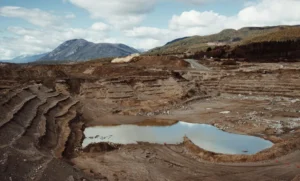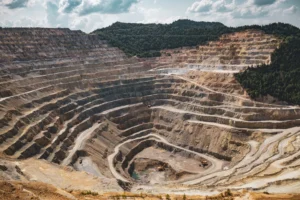Air pollution is the contamination of the air with harmful substances that can have severe consequences for both human health and the environment.
These pollutants, including particulate matter, nitrogen oxides, sulfur oxides, and volatile organic compounds, can lead to respiratory diseases, cardiovascular problems, cancer, and eye, nose, and throat irritation.
Pollution is the contamination of the environment with harmful substances that can have negative effects on ecosystems and human health.
These harmful substances can come from various sources, including industrial activities, transportation, waste disposal, and agricultural practices.
Pollution can lead to a range of environmental problems, such as water pollution, air pollution, soil pollution, noise pollution, and thermal pollution.
Air Pollution
Air pollution refers to the presence of harmful substances in the air we breathe, affecting both human health and the environment.
These pollutants mostly come from human activities, such as industrial processes and vehicle emissions, as well as from natural sources, such as wildfires and volcanic eruptions.
The impact of air pollution is widespread and understanding what is air pollution and why it matters is crucial for resolving its challenges and finding solutions to protect our health and planet.
What is Air Pollution?

Definition and significance
Air pollution occurs when harmful chemicals, particulate matter, or biological materials contaminate the atmosphere. These pollutants can cause serious health problems, including respiratory and cardiovascular diseases.
The significance of air pollution lies in its far-reaching effects on human health, ecosystems, and the climate.
Global impact
Air pollution is a global issue, affecting every continent. It contributes to climate change, acid rain, and the depletion of the ozone layer. Poor air quality is linked to millions of premature deaths annually. Resolving air pollution requires coordinated efforts from governments, industries, and individuals worldwide.
Historical Context and Evolution
Air pollution has been a concern for centuries, dating back to the Industrial Revolution when the burning of coal in factories and homes led to the first recorded instances of severe smog. Over time, as industries expanded and urban populations grew, the sources and severity of air pollution increased.
The evolution of air pollution reflects changes in industrial practices, energy consumption, and transportation, making it a complex issue that has developed alongside human progress. Today, the focus has shifted to finding sustainable ways to reduce pollution and its harmful effects.
Causes of Air Pollution
Air pollution is caused by various sources, including industrial activities, vehicle emissions, agricultural practices, and natural events like wildfires.
Industries release pollutants such as sulfur dioxide and nitrogen oxides, while vehicles emit carbon monoxide and hydrocarbons.
Agriculture contributes through the use of pesticides and fertilizers, which release harmful chemicals into the air.
Natural causes, like volcanic eruptions and dust storms, also play a role. The history of these causes shows a shift from localized pollution to global concerns as industrialization and urbanization have spread across the world.
Effects of Air Pollution

Air pollution has wide-ranging effects on human health and the environment. It can cause respiratory issues, cardiovascular diseases, and worsen existing health conditions.
Long-term exposure to polluted air can lead to chronic illnesses and reduce life expectancy. The environment also suffers, with air pollution contributing to acid rain, which damages forests and water bodies, and to climate change, which disrupts biodiversity and ecosystems.
Historically, these effects have become more pronounced as industrial activities and urbanization have expanded, making air pollution a critical issue for both human and environmental health.
Air Pollution and Climate Change
Air pollution and climate change are connected. Pollutants like carbon dioxide, released from burning fossil fuels, contribute to both air pollution and global warming.
Reducing air pollution, particularly through shifting to cleaner energy sources and improving transportation systems, can help lessen climate change and improve air quality.
Air Pollution and Global Warming
Pollutants like black carbon and ozone contribute to global warming. Burning fossil fuels, a major source of air pollution, releases greenhouse gases like carbon dioxide, further accelerating global warming. Rising temperatures lead to more frequent and severe extreme weather events.
CFCs, once used in refrigeration and aerosols, contribute to smog formation and global warming. They react with other pollutants to form photochemical smog, which can cause respiratory problems. Also, CFCs are potent greenhouse gases, contributing to climate change.
Solutions to Air Pollution
Resolving air pollution requires a combination of government regulations, individual actions, and technological advancements.
Governments play a main role by implementing laws and setting standards to reduce emissions from industries and vehicles. Individuals can help by reducing their carbon footprint, such as using public transport or adopting energy-efficient practices.
Technological innovations, such as air purification systems and the use of renewable energy sources, are crucial for reducing pollution levels.
Sustainable practices, such as recycling, proper waste disposal and conserving energy, also contribute to cleaner air and a healthier environment.
Action Against Air Pollution
Taking action against air pollution involves practical steps that individuals and communities can take to reduce their impact.
Simple actions such as reducing energy consumption, using public transportation, and supporting green initiatives can make a difference.
Community involvement is also essential, as collective efforts can drive policy changes and raise awareness about the importance of clean air and sustainability.
Looking to the future, technology is important in combating air pollution, with innovations in renewable energy and pollution control systems offering new ways to protect the environment and public health.
For a more comprehensive detail, explore our blog post on substitutions to reduce air pollution.
The Bottom Line
Air pollution is a complex issue with serious implications for health and the environment.
By understanding its causes, effects, and solutions, we can take meaningful action to reduce pollution and protect our planet.
The main points covered in this article show the importance of government policies, individual responsibility, and technological improvements in resolving air pollution.
It is crucial for everyone to take action, spread awareness, and work together to create a cleaner, healthier world for future generations.
FAQ's
1. What is air pollution and why is it bad?
Air pollution is the contamination of the air with harmful substances. It’s bad because it can cause respiratory problems, heart disease, and even death.
2. What causes air pollution?
Air pollution is caused by the burning of fossil fuels, industrial emissions, vehicle exhaust, and other human activities.
3. How does air pollution affect humans?
Air pollution can cause a variety of health problems, including respiratory infections, asthma, heart disease, and lung cancer. It can also irritate the eyes and nose.
4. How do we stop air pollution?
We can stop air pollution by reducing our reliance on fossil fuels, improving energy efficiency, and adopting cleaner transportation options. We can also reduce our consumption of products that contribute to air pollution.




